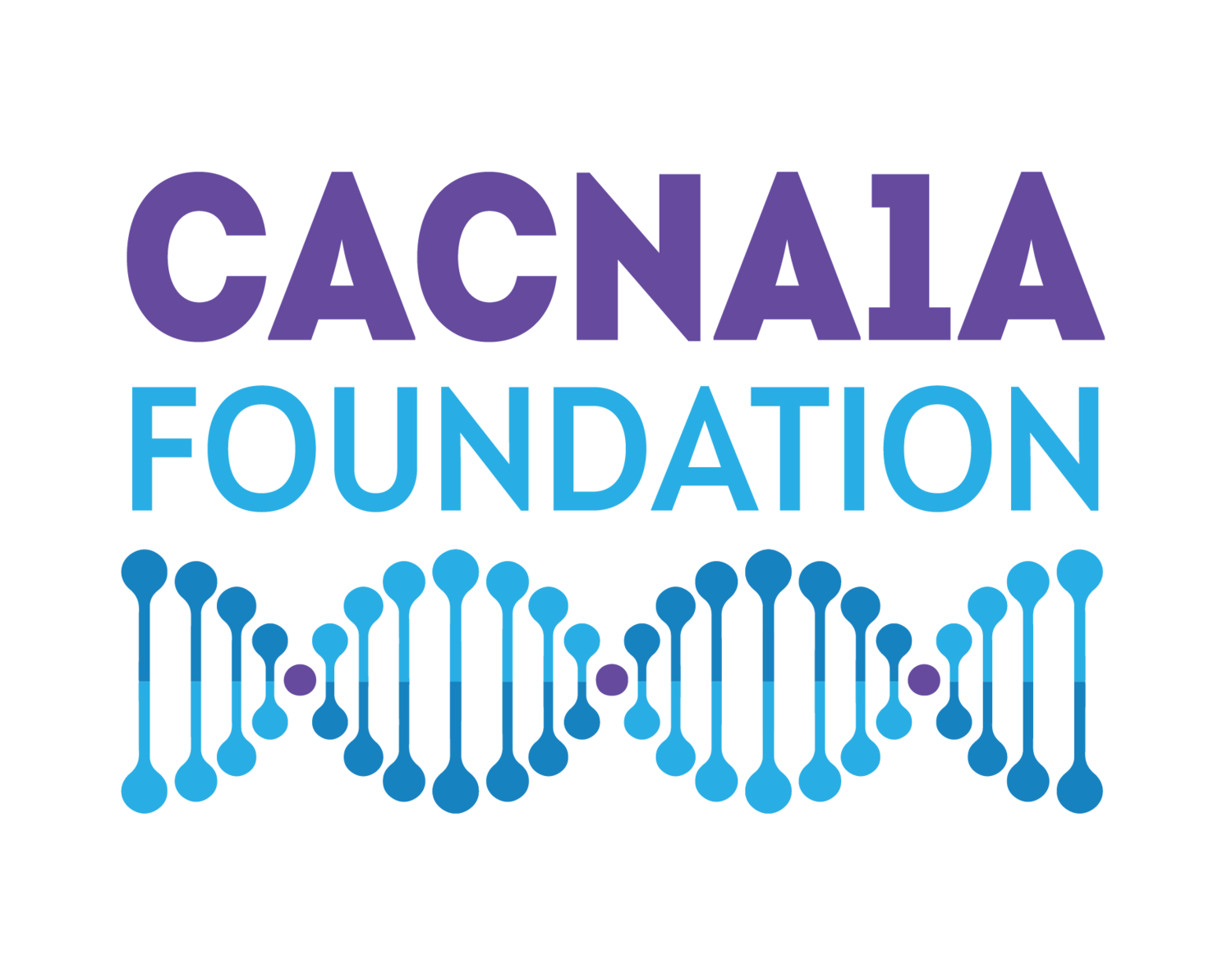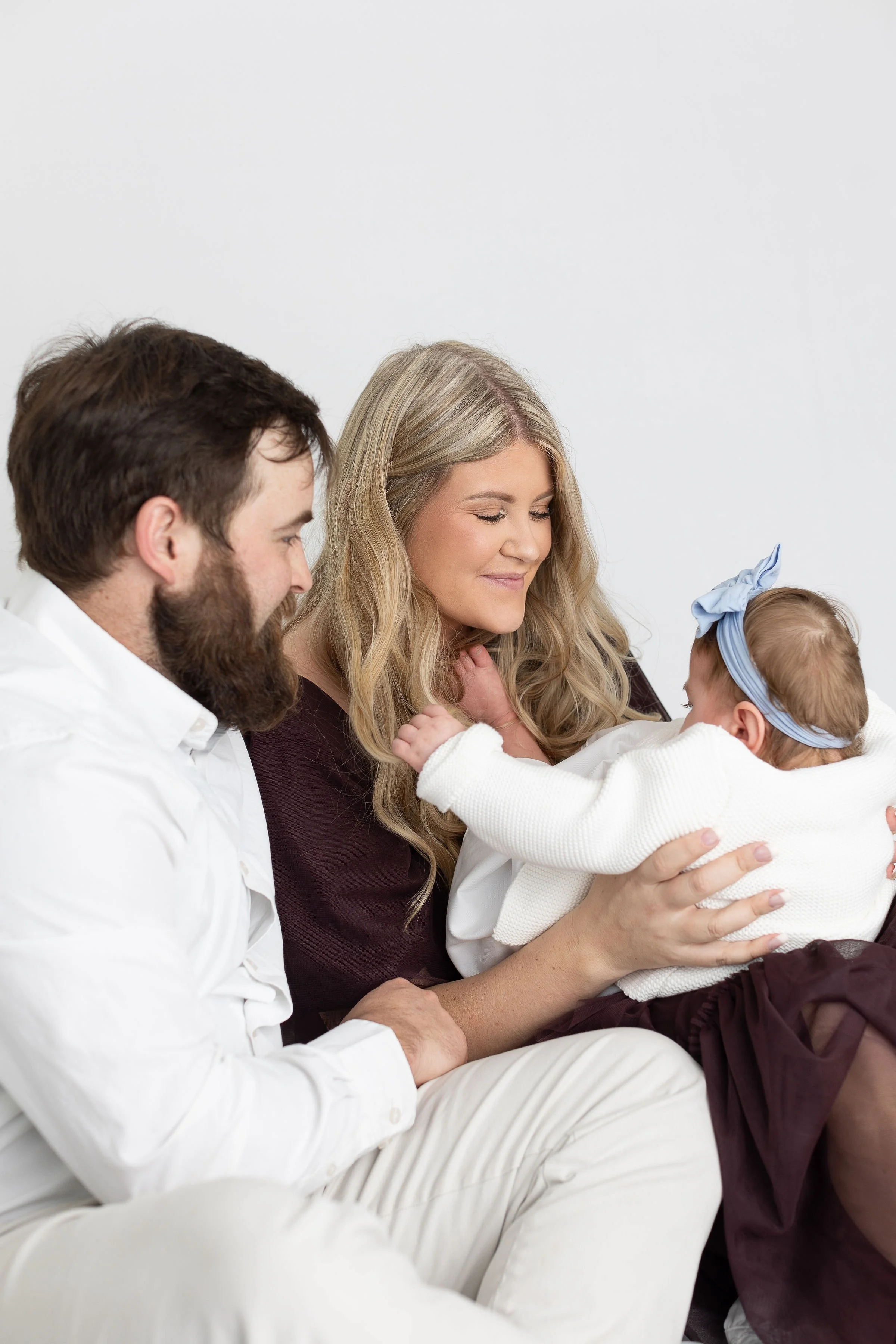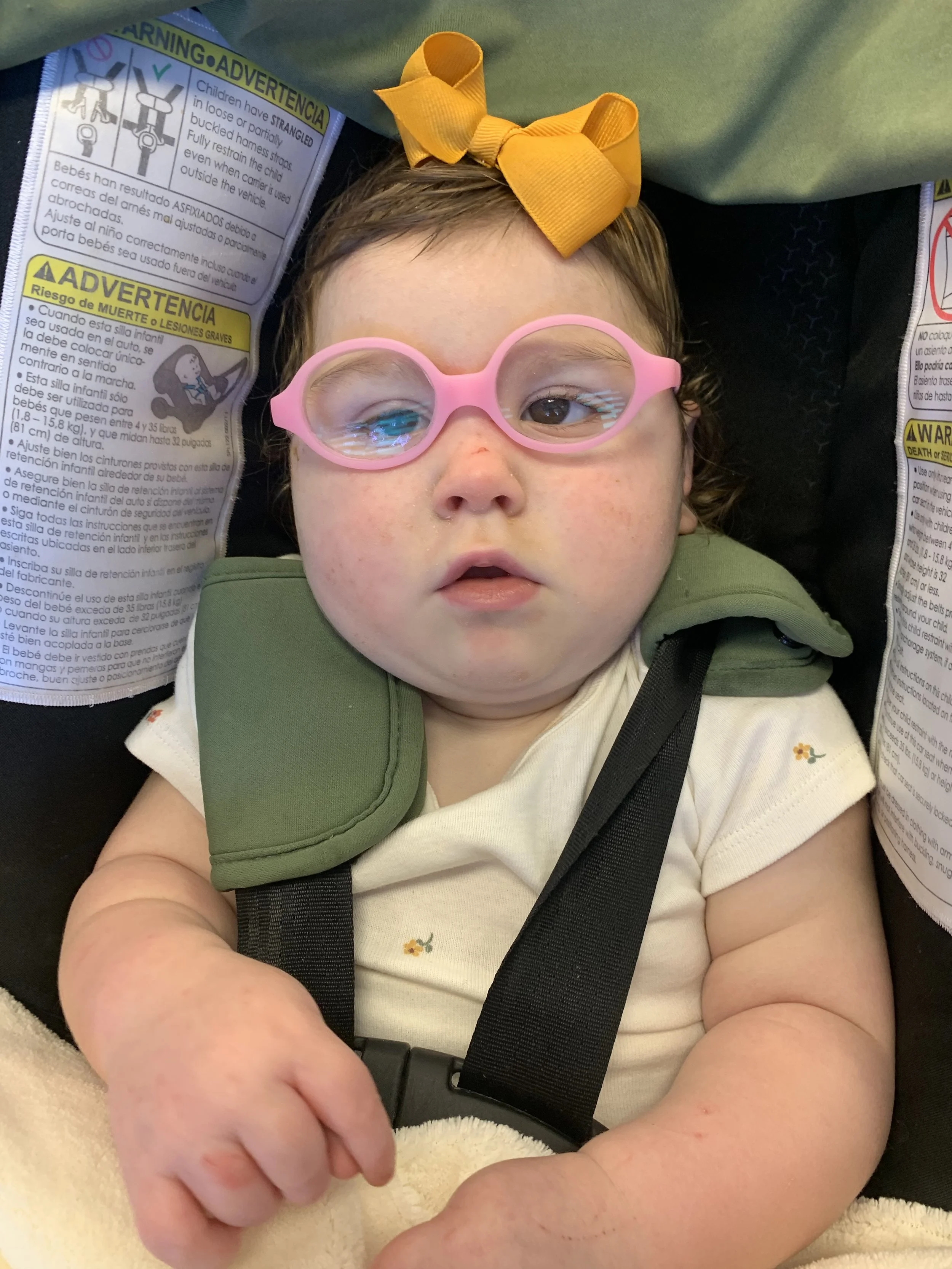Mikki’s
Story
Mikki is 20 months old and from Georgia. Her mom, Tanner, tells us that Mikki loves music. She will kick her piano on her playmat and turn to her side to enable a toy or piano that sings. At four months old, Mikki was smiling, laughing, making eye contact, cooing, and trying to hold her head up. Unfortunately, that’s when her seizures started, and she lost these skills. However, Mikki is the queen of their household with all her sass. One of her strengths is working a room to ensure all attention is on her. Tanner states, “Mikki is our beautiful daughter, and we are so proud of her. I can’t, and never would, want to change who she is.”
History
At four months old, Mikki started having seizures and was diagnosed with infantile spasms. She had genetic testing, and when she was eight months old, her family received the diagnosis of a CACNA1A de novo variant.
As mentioned, at four months old, Mikki was smiling, laughing, making eye contact, cooing, and working on holding her head up. After her seizures began, she lost these skills. At 20 months old, Mikki still struggles to hold her head up; she cannot roll, grab things, or sit up independently. In addition, Mikki struggles to make eye contact and is behind in speech. She is HARD to take steps in her gait trainer and keep her head up. She’s made a lot of progress in this area but still has a long way to go.
Currently, Mikki’s infantile spasms are under control. She also has neurostorms that her family needs to monitor closely.
Therapies
Physical therapy, occupational therapy, and speech therapy have all been helpful for Mikki. Tanner writes that the therapists have taught them many things they can do at home and that they’ve seen the most progress in physical therapy.
Mikki receives services through Babies Can’t Wait (BCW), Georgia’s early intervention program that offers a variety of coordinated services for infants and toddlers with special needs, from birth to three years of age, and their families. This program has been a huge help!
For Those Newly Diagnosed
Tanner’s advice for newly diagnosed families would be not to set any timelines for expectations or achievements. These kiddos are on their own timeline and try not to compare them to other children their age. When they make progress, no matter how small, make a big deal about it. They will improve in their own time, and you have to be patient with them. Tanner also wants others to know that she and her husband are young parents who were completely foreign to the world of special needs. Tanner’s diagnosis was a huge shell shock, and they’ve mourned a lot. But, she writes, “On the other side of it is our beautiful daughter we are so proud of. I can’t, and never would, want to change who she is.”













